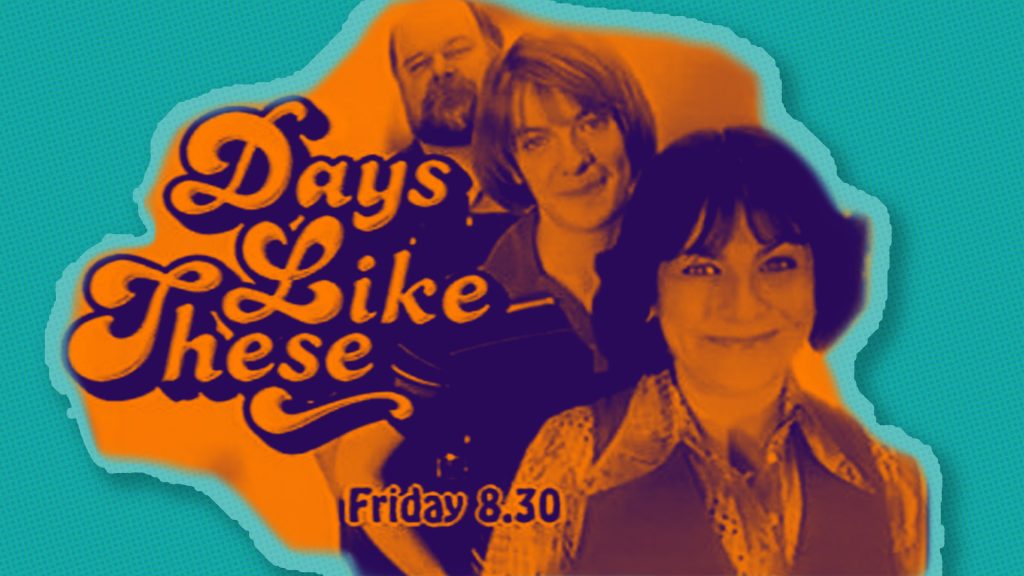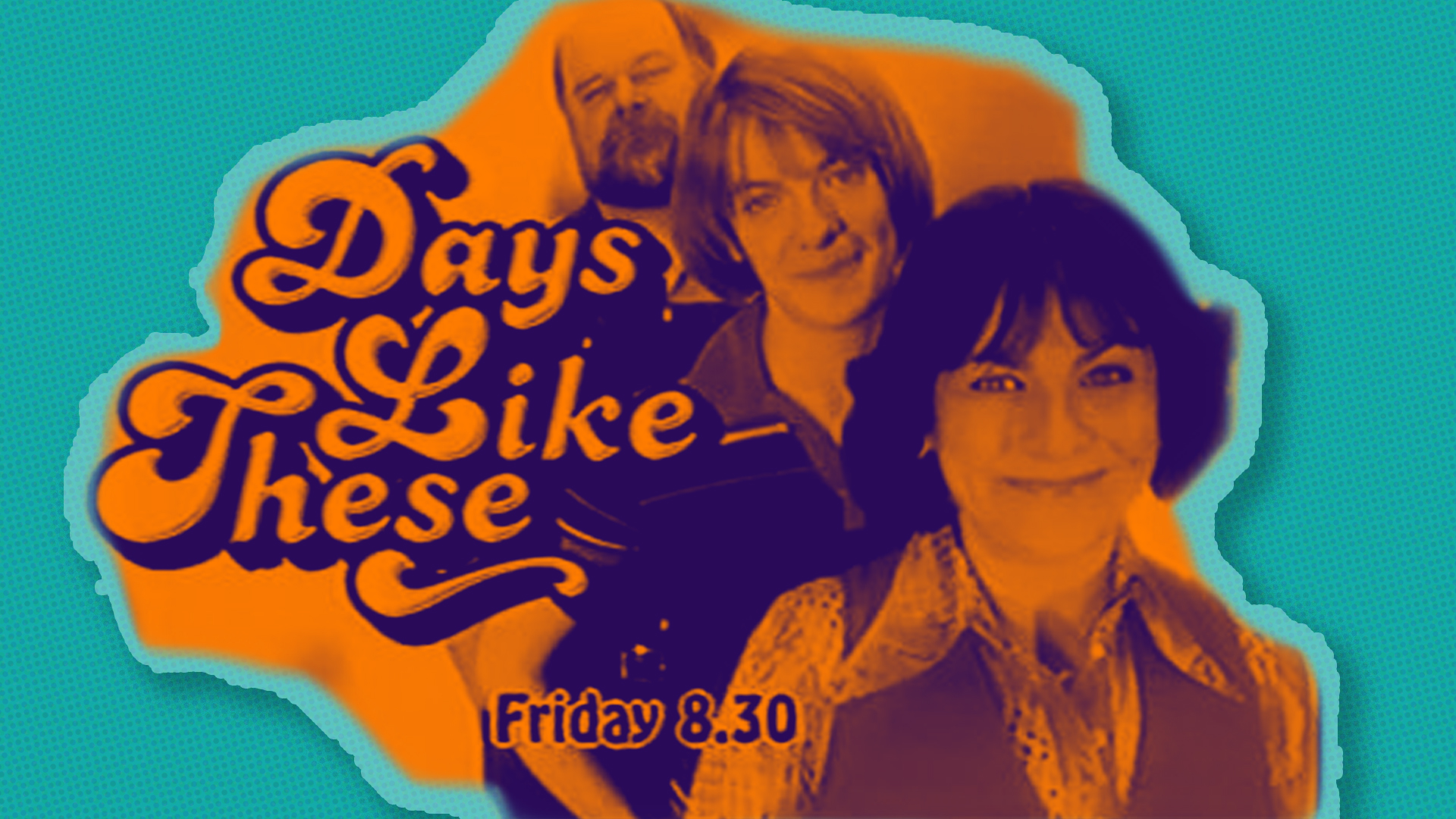Days Like These was an ITV remake of That 70’s Show, which was created by Bonnie Turner, Terry Turner, Mark Brazill Caryn Mandabach, and Linda Wallem, and adapted for British screens by Jesse Armstrong and Sam Bain.
It was another in a longish line of remakes following on from the success of The Upper Hand, including Married For Life and Loved By You.
(CW: The titles for the orginal show contain a convicted felon.)
ITV wanted to take advantage of News At Ten being moved.

The day before the first episode aired, Maggie Brown praised the project’s ambition, but gave it a lukewarm review.

On the day of broadcast, it was Pick Of The Day in the Mirror.

And we can see that far from being in that half ten slot, it was now going to go out at half eight instead. Just four days later, the same paper ran this:

The gossip column in The Stage was all a twitter that week too.

And again a few weeks later.

Charlie was still angry about the show in mid-March, when it was moved to counter under-performing ratings.

And again, a week later … though here he throws in some nuanced analysis, before pivoting to Seinfeld and falling for the ‘show about nothing’ canard.

At the turn of April, The Stage took a rather more in-depth look at what had gone wrong, concluding that a combination of the title change, the slot change, and some production decisions had worked against what was a rather good show. Being up against the behemoth of Birds Of A Feather did it no favours whatsoever.

Mark Lewisohn summed it all up here …
An adaptation of the hit US series That ’70s Show executive-produced for Granada by its American originators, Days Like These was launched by ITV with excessive hype and an equal amount of hope – and then completely failed to deliver. The jokes were lame, as was the belief that British viewers would react to the nuttier side of the 1970s (perms, wide lapels, Zapata moustaches). Although Seventies references ran through the show – Eric’s father, Ron, was a car worker on a three-day week, for example – the stories used the basic and timeless themes of romance, angst, the generation gap and growing pains – but in silly old clothes. The US original was hardly a classic either, but there the blend somehow worked. The reaction of ITV Network Centre to its dud was shoddy – after three episodes on a Friday evening the series was switched to Sunday evening, Friday evening and then disappeared for three months before turning up late on Wednesdays. Considering the great belief the executives had in Days Like These after seeing the episodes, albeit before transmission, they abdicated responsibility with alarming speed.
The BBC Guide To Comedy
There was one realistic touch. With certain honourable exceptions, the 1970s was a period of dire sitcoms in Britain. Days Like These captured that spirit with flying (and garish) colours.













